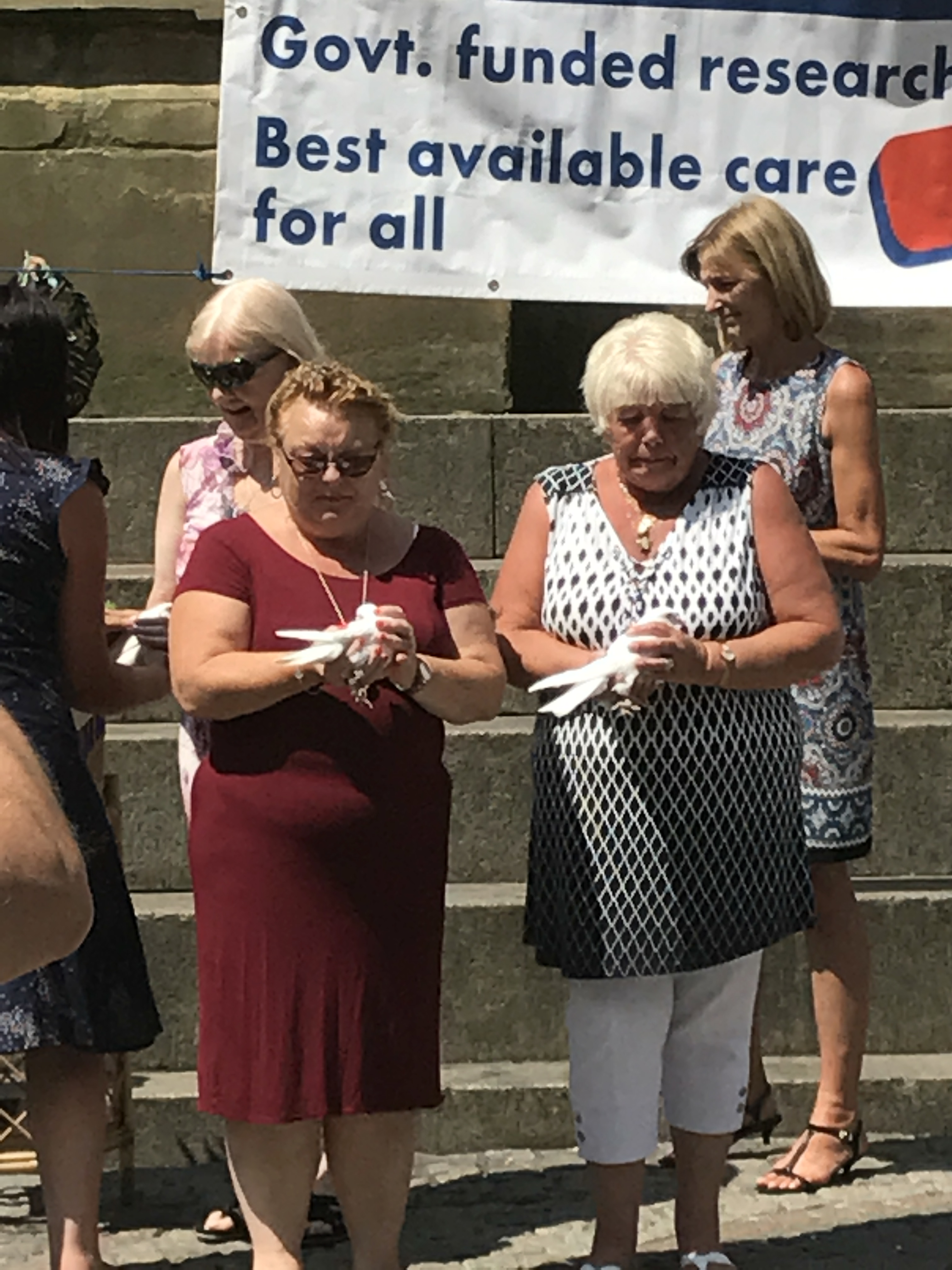International Women's Day 2019 - How mesothelioma affects those around the person diagnosed
04 Mar 2019

When people think of mesothelioma, they generally think of men developing the condition through traditional industries such as laggers, pipefitters, plumbers and joiners and it is true, that the majority of people that develop mesothelioma the UK are men and a minority are women.
However even though women don't necessarily develop mesothelioma, there life is still greatly impacted by the condition.
Mesothelioma usually affects the older generation although there are of course some cases for younger people. Many who develop it have been married or living with the same partner for decades. They have become dependent upon each other sometimes to the exclusion of all others with few friends or family members for support.
Many women find themselves suddenly thrust into the role of carer for a husband or partner who has developed mesothelioma and was previously reasonably fit and active. They find themselves looking after a very ill person sometimes with very little outside support from family members or professional services depending on the support available in their area.
For some there is some help available such as through local hospices or charities that provide respite care. Many hospices also provide outpatient services that allow sufferers to go to the hospice on a daily basis just to give their carer a break.
There are also other support groups run often in conjunction with Mesothelioma UK and the local Asbestos Support Group which provide help, advice and support to the sufferer and their family and provide the opportunity to talk to others going through the same thing in an informal setting.
Unfortunately there are still gaps leaving some without support.
Women are also affected because often they are the one that are left behind when their husband or partners dies. For many the loss of a husband or partner has a significant impact on their life and not just emotionally.
Some women are very independent. Others have always adopted a more traditional role in the household particularly when they are of an older generation such that they have always done tasks such as the cooking and cleaning whilst the husband or partner has carried out the more manual tasks such as the DIY, the gardening and the driving.
Many older women don't drive or they don't like to drive long distances. They've often been reliant upon the husband or partner to drive them anywhere they wanted to go. The loss of the husband or partner means that they suddenly have to rely on public transport or taxis or risk becoming socially isolated because they can no longer go where they previously did.
Often we find women didn't undertake the DIY or gardening and suddenly become reliant on outside tradesmen to help them with this in a way that they wouldn't have needed before. Often husbands or partners have arranged for outside tradesmen to come in when necessary and their wives haven't needed to.
Women become isolated in other ways too. Many couples are part of a group that go on holidays together. Suddenly they find themselves feeling unable to do so because they are on their own.
The same can of course be true of husbands and partners left behind when their wives or partners die. However because mesothelioma is still a disease which affects significantly more men than women it is women that tend to find themselves in this position more often.
Not everybody will be affected in the same way. Some are much more resilient or have always been more independent than others. Some are very stoical. But whatever the situation, sometimes everybody needs a bit of help.
Luckily there is some help available. There are outside organisations that may be able to help.
Many of the Asbestos Support Groups have a bereavement group which can help and provide much-needed support and friendship. You can find details of some of those groups below.
There are also other charities too who may be able to assist such as Age UK and doctors can refer people for counselling if it's needed.
On International Women’s Day it’s important to remember that mesothelioma affects women as well as men, whether it be because they are diagnosed with the condition themselves or whether it be because they are the ones caring for a loved one and the one left behind.




